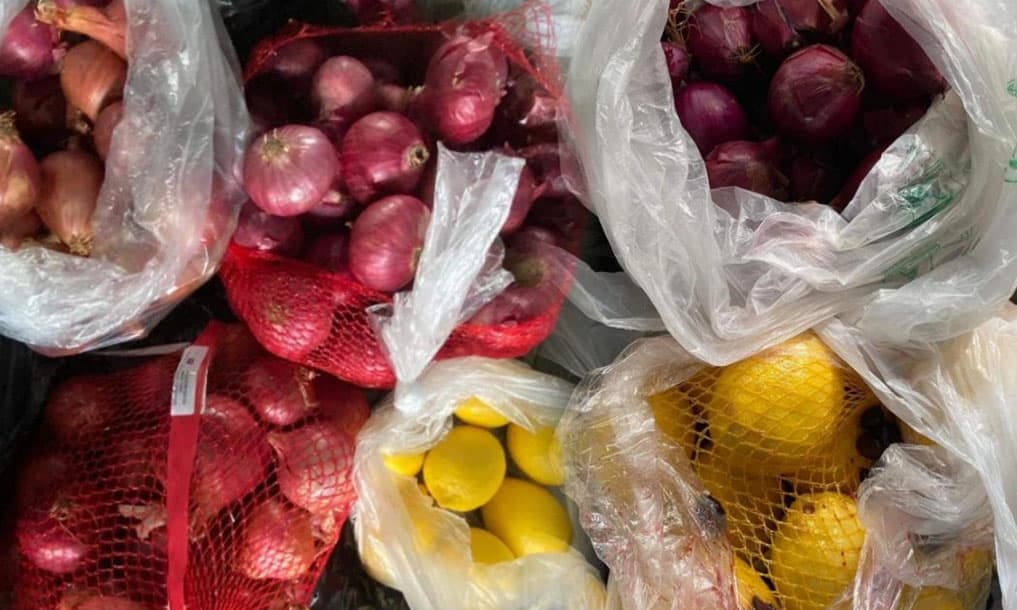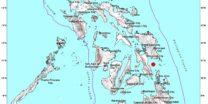PHILIPPINE Airlines flight attendants recently made headlines after being caught with 40 kilos of undeclared onions and fruits in their luggage, which were subsequently confiscated.
The 10 cabin crew members, whose flight came from Dubai and Riyadh, are now under investigation.
Not a few said they could understand the crew members’ decision to bring in the produce, especially onions, which are now more expensive than meat in the Philippines.
The incident also came amid reports of the discovery of millions of pesos worth of smuggled onions in the country.
Sen. JV Ejercito was among those who sympathized with the flight attendants. Estrada said the vegetables and fruits they brought in were likely for personal consumption because of the relatively small quantities.
“Tapos mga big-tIme Agri smugglers ilang container ang nailulusot awar-araw! Wow naman! Wag kami!” Ejercito tweeted.
The law does not completely prohibit passengers coming to the Philippines from bringing in vegetables from other countries. But these passengers must apply for proper permits for any vegetable or produce they bring in before these could be cleared for entry into the Philippines.
What did the cabin crew do wrong?
According to the Bureau of Customs, any vegetable that air passengers intend to bring in to the country must have clearance from the Bureau of Plant Industry.
The rule applies to all vegetables and other produce, regardless of whether the passenger is bringing in just one piece or boxes of it.
Those for personal use must be covered by a Plant Quarantine Clearance. Those for commercial use must have a Sanitary and Phytosanitary Import Clearance.
People who intend to import plants and plant products should file an application for the clearance with the National Plant Quarantine Services Division prior to importation.
Why the need for this?
Philippine officials require inspection and quarantine for produce coming from abroad in order to prevent the spread of plant pests in the Philippines and protect the plants in the country.
The legal basis for this is Presidential Decree 1433, which is the Plant Quarantine Law of 1978.
The Customs Modernization and Tariff Act also states that importations of plant products are considered “Regulated Importations” which require a prior clearance or permit from a government regulatory agency.
What are subject to inspection?
According to the Bureau of Plant Industry, the importations that require clearances and are subject to inspection are:
- Living plants
- Nursery stocks
- Seeds nut for planting
- Fresh fruits, vegetables, and other plant products which have been declared as prohibited or restricted for being known hosts of pests or for coming from restricted areas
- Pure cultures of fungi, bacteria, virus, nematodes and other phytopathogenic materials
- Mushroom cultures including spawn
- Algae cultures, rhizobial cultures as legume inoculants.
- Soil and plant materials for isolation of organism
- Other plants cultures
- Certain species of animals capable of causing injury to agricultural crops or are liable to become agricultural crop pests
- Biocontrol agents and genetically modified organism/materials
Before these could be imported into the country, these must undergo Pest Risk Analysis, which would determine if these could be allowed entry or not.
Once the application is approved and the fees paid, the importer will be given four copies of the clearance.
The importer must file with the Plant Quarantine Services an application for inspection at least 24 hours prior to the arrival of the vegetables.
In the absence of the clearances or phytosanitary certificates, the vegetables will be placed under custody of the Bureau of Customs or the Plant Quarantine Services until the proper documents are presented.
If no clearance can be presented, the produce will be returned to the country of origin, re-exported to another country that will accept it, or destroyed.
Banner photo credit: Bureau of Customs- NAIA








